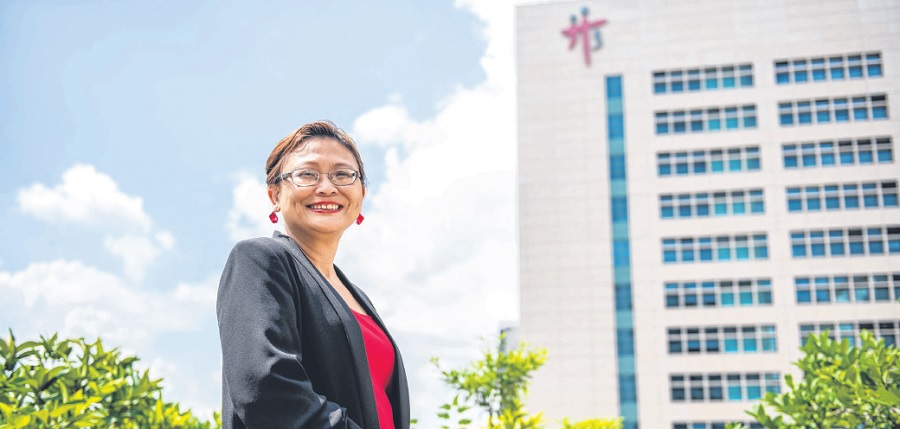 Professor Lim Poh Lian says that when overseas, masks should be worn in all enclosed spaces like malls and museums, as well as airplanes and tour buses. Outdoors, people can consider taking their masks off, although this is not advisable in crowded areas. ST PHOTO: SHINTARO TAY
Professor Lim Poh Lian says that when overseas, masks should be worn in all enclosed spaces like malls and museums, as well as airplanes and tour buses. Outdoors, people can consider taking their masks off, although this is not advisable in crowded areas. ST PHOTO: SHINTARO TAY
You could choose one with high vaccination, booster rates, says expert on Covid-19 panel
The Straits Times (6 April 2022)
Those planning to travel soon and wanting to play it safe should pick a country with high vaccination and booster rates, suggests Associate Professor Lim Poh Lian.
Another “green flag” is if the country still has sensible precautions in place – for example, maskon rules indoors, added Prof Lim, who heads Tan Tock Seng Hospital’s
Traveller’s Health and Vaccination Clinic.
Healthcare systems in such places are less likely to be overwhelmed, she said in an exclusive interview with The Straits Times.
"Even if you get sick, you will not be going to a place where the doctors and nurses are all frazzled, and emergency rooms are chockfull of people with Covid-19," said Prof Lim, who is the director of the high-level isolation unit at the National Centre for Infectious Diseases.
She is also a member of the expert committee on Covid-19 vaccination, which makes recommendations to the Government on Singapore’s vaccination strategy.
Since April 1, vaccinated travellers and children aged 12 and below have been allowed to enter Singapore without quarantine restrictions.
The only requirement is that they have to take a pre-departure Covid-19 test before getting on the plane.
People in Singapore have more travel options as well, as borders open around the world. They also no longer need to book designated vaccinated travel lane flights on their return.
But what precautions should people take to keep themselves safe from the coronavirus when overseas?
Kitted out for safe travel
Infectious diseases specialist Lim Poh Lian is currently in Greece on a two-week work trip. Here is what she packed to keep herself safe:
1. SURGICAL MASKS
These are sufficient for everyday use. They should be changed at least once a day, or when they get wet or dirty.
2. N95 MASKS
These higher-grade masks will come in handy if you require medical care on your trip and have to visit a facility where you will be around other sick people.
3. HAND SANITISER
It is important to keep your hands clean, especially before touching your face to remove your mask.
4. ALCOHOL SWABS
These can be used to wipe down your airplane seat or other shared surfaces before using them.
5. ANTIGEN RAPID TEST KITS
Certain countries may have shortages or sell kits that provide less accurate results, so it is a good idea to have your own supply.
Prof Lim said masks should be worn in all enclosed spaces. These include malls and museums, as well as airplanes and tour buses.
Outdoors, they can consider taking their masks off, although this is not advisable in crowded areas.
People should also be extra careful when it comes to cruises, as high infection rates have previously been reported on board cruise ships, she said. "You’re with a lot of people and in an indoor setting for a very prolonged period. If you love cruises, go ahead – but be aware of the higher risk and do what you can to stay safe."
The Ministry of Foreign Affairs, which offers tips on its website, suggests travellers purchase comprehensive travel insurance that includes medical evacuation in case of emergencies.
The World Health Organisation said travellers should open windows in their accommodation to increase ventilation.
Prof Lim suggested that people with weakened immune systems should take extra precautions when they travel, while unvaccinated people of any age should think twice about travelling.
The bottom line?
"If you’re fully vaccinated and boosted and you don’t have major medical issues, then part of the transition is learning to live with Covid-19,” Prof Lim said. “You accept that there’s some risk, but you try to minimise the risk."